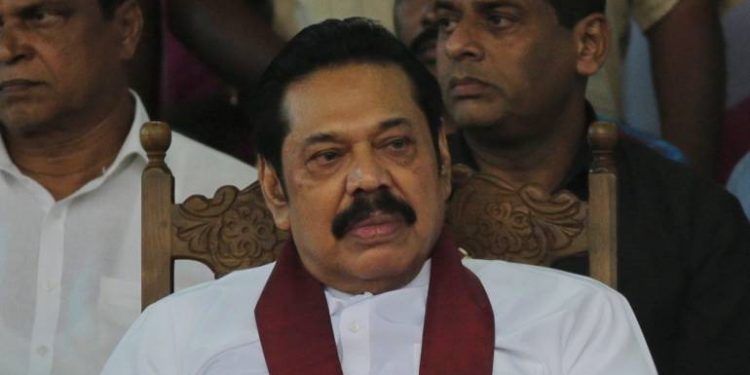Colombo: Sri Lanka’s beleaguered Prime Minister Mahinda Rajapaksa, who has repeatedly defied calls to quit, has come under fresh pressure to resign at a special Cabinet meeting held before a state of emergency was imposed by his younger brother and President Gotabaya Rajapaksa.
The special Cabinet meeting was held Friday as the country witnessed protests against the government over their inability to tackle the economic meltdown which has caused unprecedented hardships to the public.
President Gotabaya Rajapaksa declared a state of emergency with effect from Friday midnight, the second time in just over a month.
“There were opinions during the Cabinet, some even suggested the prime minister must resign. The President (Gotabaya Rajapaksa) was keen to see an end to the political crisis even with the resignation of the prime minister,” a ministerial source said
Read Also – Ukraine urges Russia’s troop pullback to resume talks
The backers of the 76-year-old prime minister had insisted him to stay on as the public demand was more for the resignation of President Gotabaya Rajapaksa, his younger brother.
The 72-year-old president for a few weeks now has been wanting the prime minister to resign in order to set up an all-party interim government.
Although Prime Minister Mahinda Rajapaksa said at the Cabinet meeting that he would readily resign if the successor could resolve the current economic crisis, he did not categorically say he would resign, according to the source.
The Mirror newspaper reported that Prime Minister Mahinda Rajapaksa listened to the President and said if a new government could solve the economic crisis and bring in an immediate solution, then he would give his blessings to the new government.
However, there is yet to be an official response on whether Mahinda Rajapaksa will tender his resignation, the report said.
But Mahinda Rajapaksa has previously emphasised that he would be the head of an interim government if there is one.
The special Cabinet meeting came as student activists kept the parliament under siege since Thursday night.
There was also a one day crippling strike of all services.
The students blocked the main entrance to the complex demanding the resignation of the government for its inability to handle the ongoing economic crisis marked by shortages of essentials.
In another turn of events, new deputy speaker of parliament Ranjith Siyambalapitiya, who was elected Thursday, offered his resignation again, saying he had taken a conscientious decision.
Siyambalapitiya was elected with the government’s backing. He had resigned following the decision by his political party Sri Lanka Freedom Party to leave the government.
Sri Lanka is currently in the throes of unprecedented economic turmoil since its independence from Britain in 1948. The crisis is caused in part by a lack of foreign currency, which has meant that the country cannot afford to pay for imports of staple foods and fuel, leading to acute shortages and very high prices.
Thousands of demonstrators have hit the streets across Sri Lanka since April 9, as the government ran out of money for vital imports; prices of essential commodities have skyrocketed and there are acute shortages in fuel, medicines and electricity supply.
Despite mounting pressure, President Gotabaya Rajapaksa and his elder brother and Prime Minister Mahinda Rajapaksa have refused to quit.
On Thursday, they won a key election in Parliament when their candidate convincingly won the race for the post of Deputy Speaker.







































